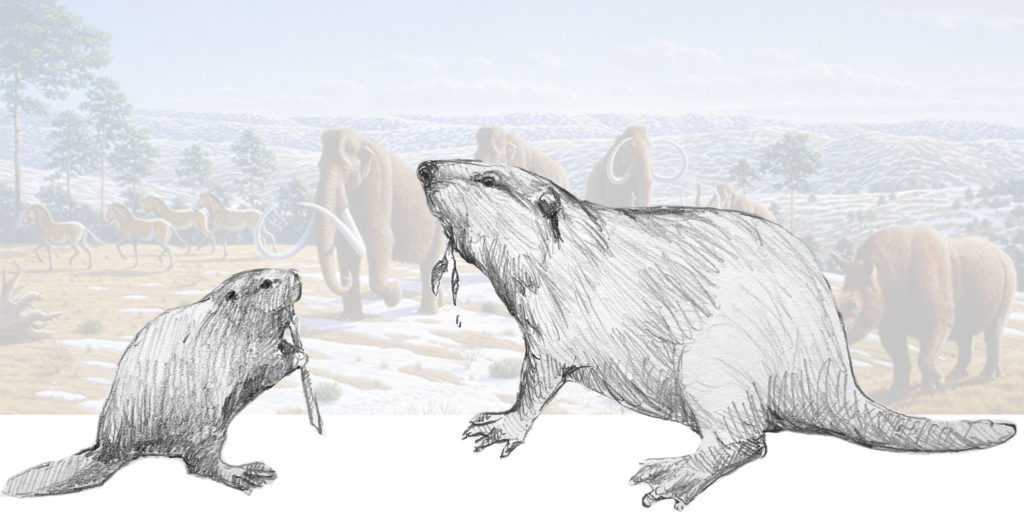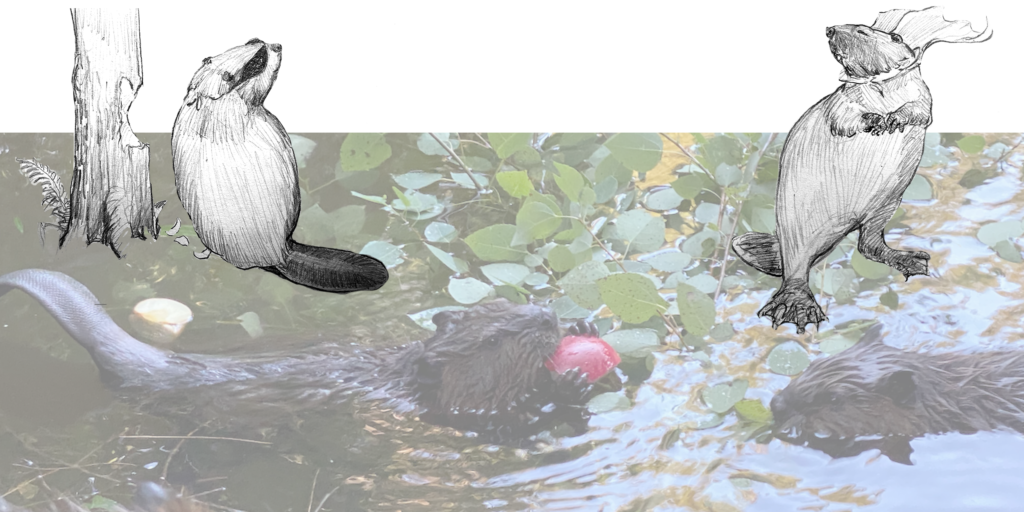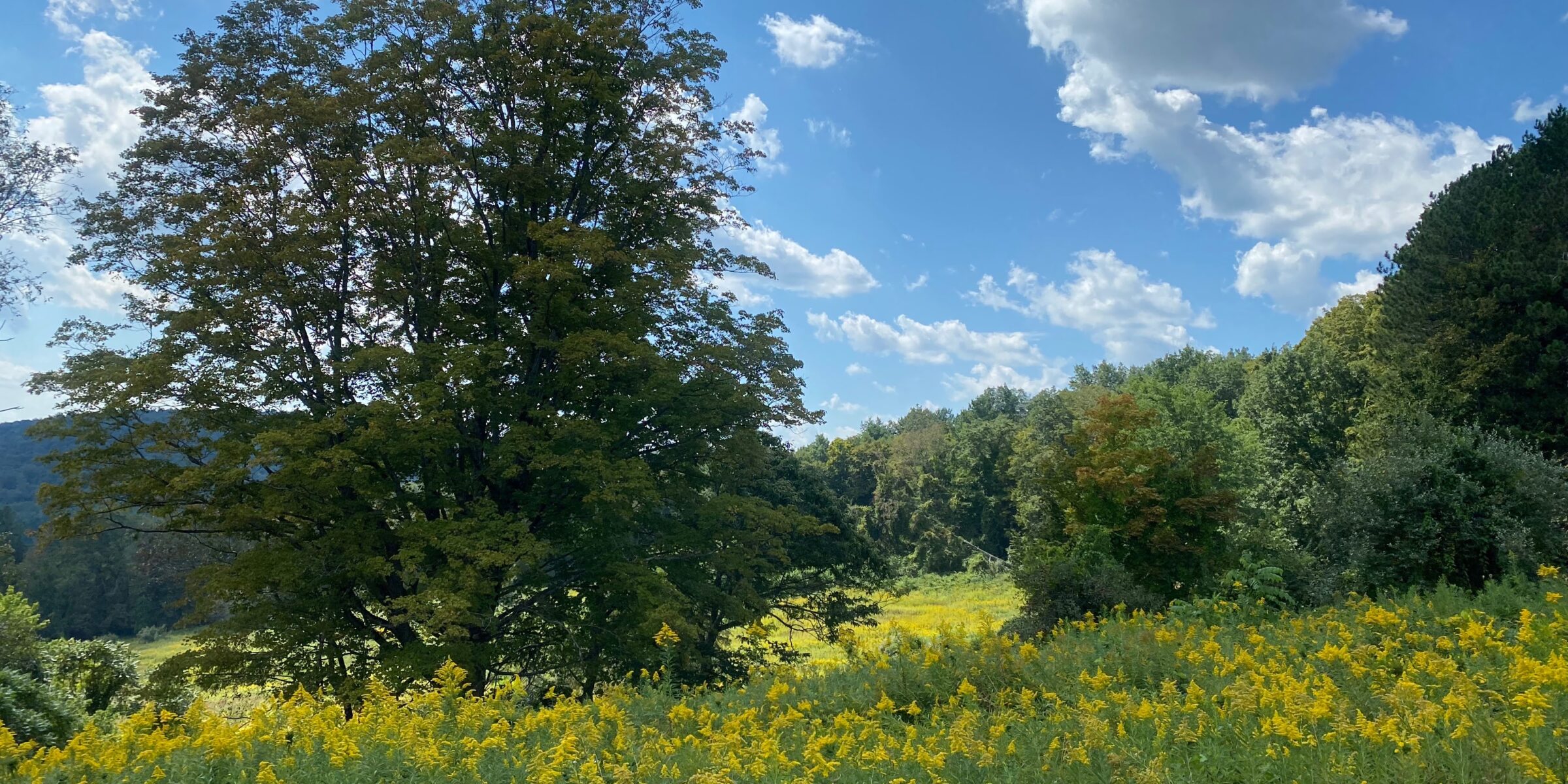Did you know?

How Big were Ice Age Beavers?
In Ice Age Westminster, giant beavers lived among the woolly mammoths and short-faced bears, oh yes, so did modern beavers. They were aquatic, but they did not cut down trees or make dams and lodges. They weighed as much as 275 pounds and were about the size of a black bear.
Beavers: Habitat Heroes or Neighborhood Nuisances?

Beavers are built for the water and they can’t live without it. That is why they are so dedicated to building dams to keep it in place. As beavers move upstream and down creating new ponds, the areas they leave behind become meadows and shrub lands. These are all important habitats for many plants and animals, from moose to mink. This makes beavers a “keystone” species—one that is essential for other species to thrive.
Guess which other species changes the landscape to suit its needs? We do! When beavers’ plans conflict with ours, they can cause us a lot of trouble. They clog culverts, cut down favorite trees, and flood fields and cropland.
Because beavers are so important, the Westminster Beaver Working Group is looking for solutions that work for people and beavers. Along the way, we are bringing you opportunities to learn more about the beavers in our midst. Here’s what’s coming up in 2023!
Programs and Events
A Beaver Year: Presentation and Field Trip 
Sunday, September 10 from 2-4
at the Westminster West Church
Join Bonnyvale Environmental Education Center naturalist Patti Smith to learn about the seasons of beavers’ lives. Patti has spent fifteen years studying a beaver colony and will share photos, videos, and stories about the beavers and other animals she has met along the way. The presentation will be followed by a field trip to a local beaver pond.
Westminster’s Wild Waterways: A look into the past
Sunday, October 1 at 3 pm
Engineer and river scientist Dr. Denise Burchsted studies natural river systems—the way rivers behaved before Europeans arrived. What she has learned will surprise you. Dr. Burchsted has mapped the town and will share her conception of what the watery world of Westminster looked like. Yes, beavers were an important part of the picture. So were forests. We hope to see you at the Fire Station to travel back in time.
A Community Conversation
Date and location TBD
Do you need a chance to complain about your neighborhood beavers? You’re welcome to come to this event and do just that, as long as you are also interested in learning about the range of solutions available to solve conflicts. Hear from beaver experts, road experts, and your friends and neighbors in this community problem-solving event.
Deceiving Beavers— In the field with Skip Lisle
Date and Location TBD
Skip Lisle has devoted his career to solving beaver conflicts. He has installed his pipe and fence systems across the country. They save taxpayer $, road crews frustration, and keep beavers and their wetlands in place.
This fall he will be installing a beaver deceiver at a conflict site in Halifax. On this evening outing, we will meet Skip at the site and learn about how beaver deceivers work. If we’re lucky, we’ll see what the beavers and other wildlife think too.
